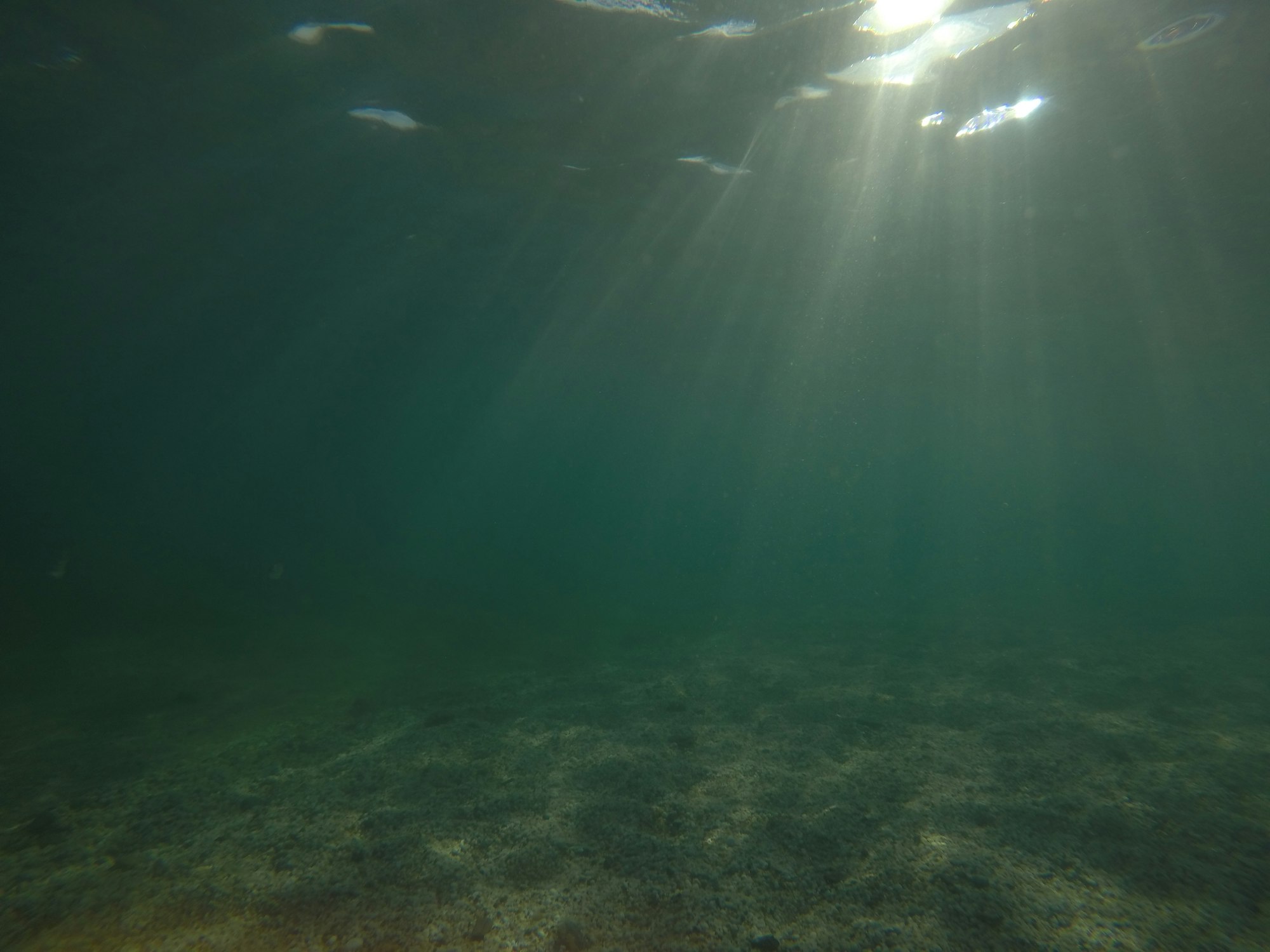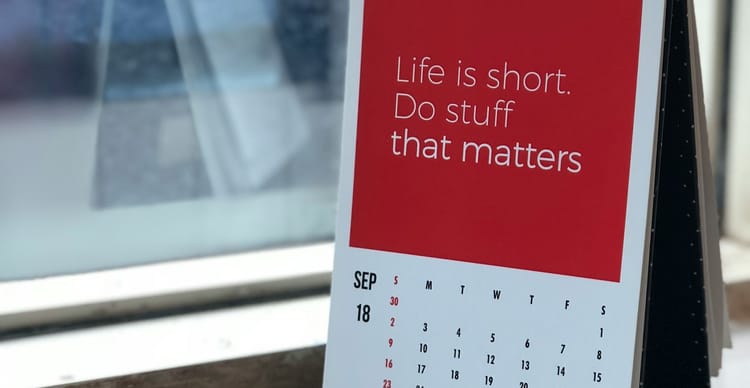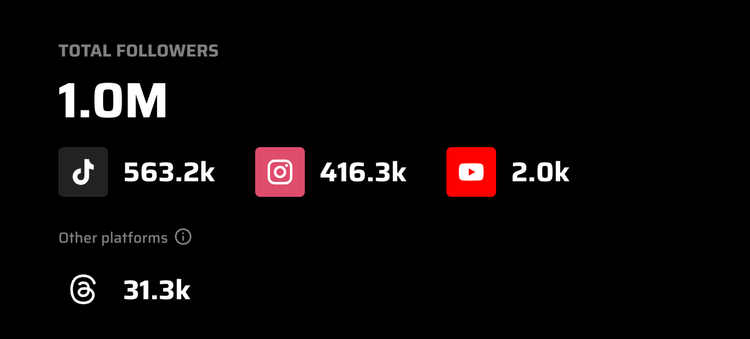no. 84: Climativity's first in-person meetup!

Hey friends,
Exciting news! I mean, I always share exciting news, but this time it's personal.
For the first time ever, I'm hosting a meetup, and I'd love for you to come.
This in-person event will be in Brooklyn next week alongside CLIP (the e-bike attachment company I talked about a few weeks ago). We'll get to tour Newlab (a climate tech hub with 250+ companies working on solutions!), mingle, eat and drink, film one of my good news videos, and test-ride the e-bikes. More info here.
If you're in New York and around next Thursday, I really hope to see you there!
There are limited tickets for this event, and as a newsletter subscriber, I'm letting you know first, a day before my social media audience. Snag a ticket now before they're gone!
If you're not in New York don't worry, I hope to host many more events in the near future in various places, and maybe some virtual ones too. Let me know if you want a meetup by you!
See you next Thursday?
The good from Monday, January 15

1.5 billion fewer single-use plastic bags were used in Colorado last year after the state implemented a 10-cent fee, and any that were still used helped fund environmental initiatives. (Denver7)
Spain has elected its first parliamentarian with Down’s syndrome as 45-year-old Mar Galcerán continues to overcome barriers and advocate for equality and inclusion. (The Guardian)
Renewable energy capacity increased by 50% last year, reaching more growth than any time in the past 20 years, a decent sign for the world’s commitment to tripling by 2030. (Politico)
40 companies are now inching closer to nuclear fusion, the almost limitless power source that’s been elusive for close to a century, with most of these companies starting in the past 5 years thanks to novel technologies and billions of dollars of funding. (Canary Media)
The good from Tuesday, January 16

Two scientists on an expedition to find the long-lost leopard barbel fish received a call from a local Turkish fisherman on day 2, drove 11 hours overnight, found the fish alive and well in a tank, and successfully documented and released this lost species which is alive against the odds and will be safeguarded. (rewild)
BMW announced that they’ve now passed a tipping point and expect future growth to be led by electric vehicles. (Bloomberg)
New York is requiring utility companies to replace gas pipelines with infrastructure to power heating and cooling with thermal energy, starting with 13 pilot projects proposed last month. (Canary Media)
Twenty-seven leading investors with trillions of dollars in Big Oil company Shell are backing a resolution that demands major emissions reductions as the industry faces growing opposition. (The Guardian)
Question of the day: do you think investor pressure will be enough to convince Big Oil to take emissions reductions seriously, and if not, what else can we do?
The good from Wednesday, January 17

Despite major lobbying, global tobacco use has greatly decreased from 1 in 3 people in 2000 to 1 in 5 people today, hinting that other harmful industries can and will be brought down too. (Reuters)
10 startups just launched the Decarbonized Cement and Concrete Alliance to create and advocate for cleaner building materials and reduce this category that accounts for 8% of yearly human emissions. (Canary Media)
Colombia established a 263-square-mile national park last month after 10 years of efforts, to protect the savanna and Amazon rainforest, conserve wildlife like jaguars and anacondas, and end ranching and plantations in the area. (NYT)
The US announced a plan to create fees for methane pollution for the first time to incentivize companies to detect and fix leaks from pipelines and facilities. (NYT)
The good from Thursday, January 18

A new “ocean DNA” study from the deep twilight zone below 200 meters found an abundance of living fungi which could lead to revolutionary new medicines similar to penicillin. (The Guardian)
Several places like Portland, San Antonio, and Boulder are now requiring the deconstruction of old buildings instead of demolition so that building materials can be salvaged and reused instead of sent to landfills. (Grist)
Almost 900 new electric vehicle chargers are coming online in the US every single week, meaning there are now just as many chargers as gas stations. (US DOE)
This absolutely gigantic metal monster is the world’s largest excavator and it’s entirely electric, redefining the possibilities of electric vehicles as it can drive on an insane 50% incline grade, and… it has heated seats! (Candian Mining Journal)
Bonus stories
In the small village of Harpur, India, women farmers like 35-year-old Babli Devi were facing water scarcity that limited their crops...
They came together to form self-help groups and pooled their savings to install solar pumps for irrigation...
These pumps have created enough water to grow more reliable produce and supply the excess to other farmers in the community, providing financial independence and confidence...
These women who are no longer financially dependent on their spouses have taken control of their livelihoods with innovative climate tech, enabling them to purchase sewing machines and education for their children, and the solar pumps are empowering a new generation of women farmers in India! (Reasons to be Cheerful)


25,000 crocheters (“reefers”) have created a stunning worldwide archipelago of more than 50 reefs!

Spread this breath of fresh air🪴
By supporting Climativity, you're helping these good stories reach more people around the world.
Support good news & independent publishingSee you again soon,
Jacob
P.S. some important info:
- *: I get a commission from these links at no additional expense to you (usually, you'll get a discount!).
- I write and publish this newsletter using Ghost, and I truly love the platform. If you want to start your own newsletter, consider Ghost* (and let me know – I'll be your first subscriber!)
- This is an independent publication that relies on reader feedback to continuously improve. Never hesitate to reach out with comments or questions.








Member discussion